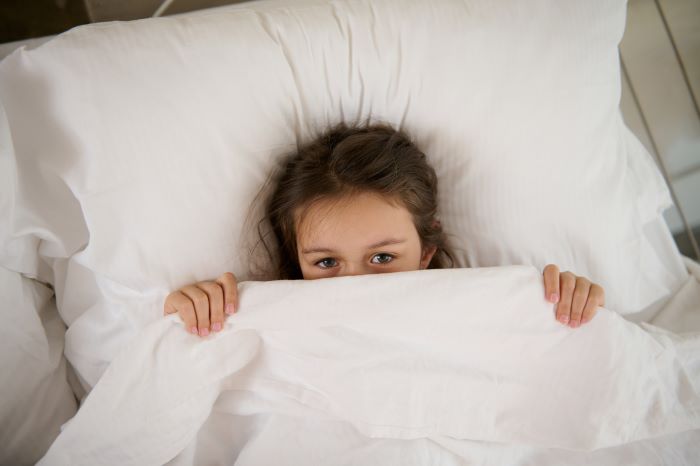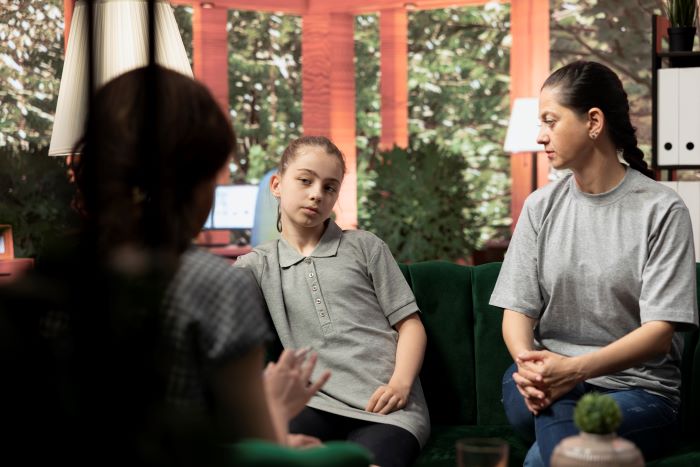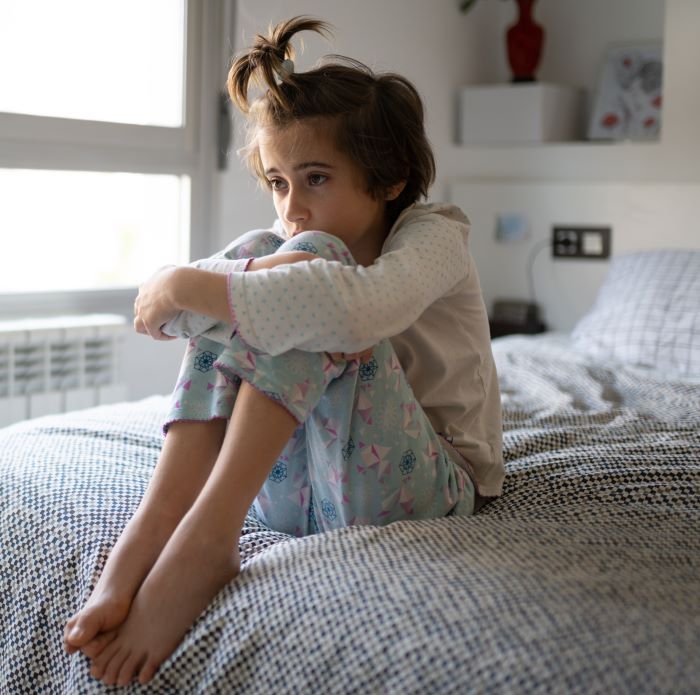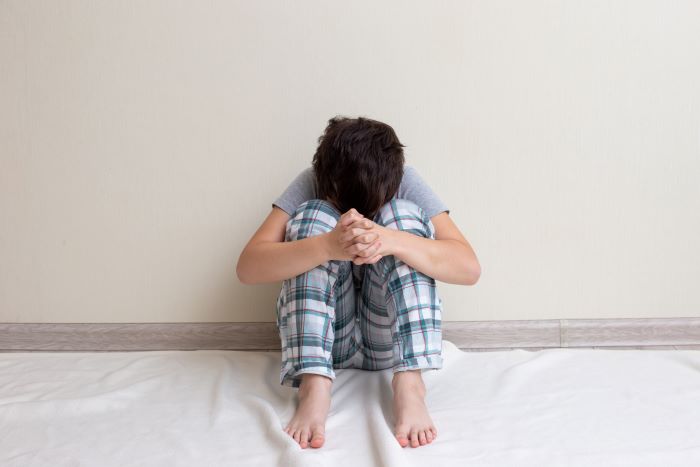Last Updated on February 24, 2025 by Mandy Gurney
Is Your Child’s Sleep Struggle a Sign of Anxiety?
As parents, it can be tough to know whether your child’s sleep troubles are just a phase or part of a bigger issue—like anxiety. Occasional restless nights are normal, but if sleep disruptions become persistent, anxiety could be playing a role.
Here’s how you can identify if your child’s sleep struggles are linked to anxiety and what you can do to help.

Signs That Anxiety Might Be Affecting Your Child’s Sleep
-
Worry-Filled Bedtimes
Does your child seem particularly anxious as bedtime approaches? If they frequently express fears—whether about the dark, being alone, or an upcoming event—these worries could be keeping them from settling down to sleep.
-
Anxiety During the Day
Sleep troubles are often just one part of the puzzle. If your child seems overly worried and follows you around the home, even if you’re just answering the door or getting a cuppa. If they won’t spend any time in their bedroom during the day unless you’re with them. If they’re irritable, restless, or have trouble concentrating during the day, their anxiety may not be limited to bedtime.
-
Frequent Requests for Reassurance
Children struggling with anxiety may ask repeatedly for reassurance about their safety at night. They might insist on sleeping with a parent, leave their bed multiple times, or make frequent excuses and delay bedtime with questions e.g., “What’s the solar system?” or “Why did the dinosaurs die out?”
-
Physical Complaints at Night
Anxiety can manifest as physical symptoms. If your child often complains of stomach aches, headaches, or other discomforts right before bedtime, it could be a sign of underlying anxiety rather than a physical illness.
-
Struggling Even in a Comfortable Sleep Environment
A quiet, dark, and cosy bedroom is ideal for sleep. But if your child continues to have difficulty sleeping despite a well-set-up sleep environment, anxiety may be interfering.
-
Exhaustion and Daytime Impact
If your child’s sleep struggles are leading to daytime fatigue, difficulty concentrating, or losing interest in activities they usually enjoy, it’s important to dig deeper into the root cause.
-
Recent Changes or Stressful Events
Has your child recently experienced a big change—like moving house, starting a new school, or a family transition such as divorce or a new sibling? Significant life events –“Life Quakes” can heighten anxiety, making it harder to sleep.
How Parents Can Help
If you suspect your child’s sleep struggles are linked to anxiety, there are steps you can take to support them:
- Create a Calm Bedtime Routine – Gentle activities like reading, soft music, or a few minutes of quiet conversation before they start getting ready for bed can help ease bedtime stress.
- Encourage Open Conversations – Let your child talk about their worries. Set aside some time every evening that’s special 1:1 time with you to give them a chance to discuss their concerns. Giving space to their thoughts earlier in the evening means they’ve been aired and given time now, rather than when your child is tucked up in bed. Reassure them that feeling anxious is normal, and help them find ways to manage those feelings.

- Teach Relaxation Techniques – Deep breathing, guided imagery, or progressive muscle relaxation can help children unwind before bed. See my blog on relaxation techniques that can help children with bedtime anxiety
- Limit Screen Time Before Bed – The alerting effect from using phones and handheld devices can disrupt sleep and increase anxious feelings. Try switching to calming activities an hour before bedtime. See my blog on the impact of screens on your child’s sleep.
- Seek Professional Support if Needed – If sleep troubles persist and anxiety is significantly affecting your child’s daily life, a paediatrician or child psychologist can provide valuable guidance and support.

Additional Support for Parents
If your child continues to struggle with sleep due to anxiety, consider looking into:
- Parenting workshops on anxiety and sleep
- Books and resources on childhood anxiety
- Support groups for parents
- Sleep consultations with professionals who specialise in children’s sleep

In my series of blogs, I will explore:
-
What causes worries or anxiety at bedtime?
-
Relaxation techniques that can help children with bedtime anxiety
- How Can I Help My Child with Bedtime Anxiety?
If your child’s sleep struggles are linked to anxiety, you’re not alone—many families face the same challenge. With the right support, your child can develop healthy sleep habits and feel more secure at night. We’ve helped hundreds of families navigate bedtime anxiety, and we’re here to help you too.
Please get in touch today to find out how we can support your child’s journey to better sleep
Written by Mandy Gurney February 2025
0 Comments






